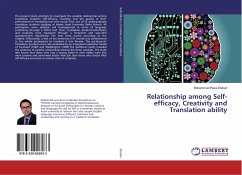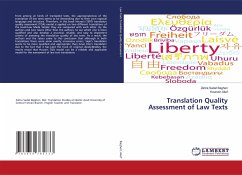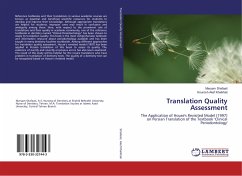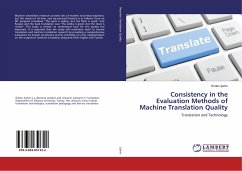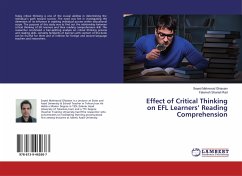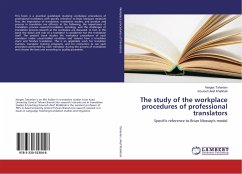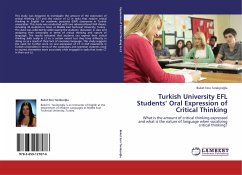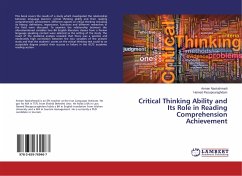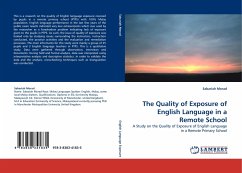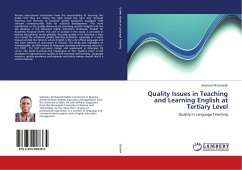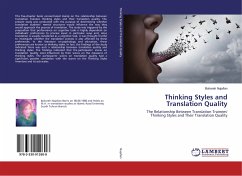
Thinking Styles and Translation Quality
The Relationship Between Translation Trainees' Thinking Styles and Their Translation Quality
Versandkostenfrei!
Versandfertig in 6-10 Tagen
33,99 €
inkl. MwSt.

PAYBACK Punkte
17 °P sammeln!
This five-chapter book concentrated mainly on the relationship between translation trainees' thinking styles and their translation quality. The present study was conducted with the purpose of determining whether translation students' mental structures would influence the way they would approach the process of translation. The study was triggered by the proposition that performance on cognitive tasks is highly dependent on individuals' preferences to process input in particular ways and, since translation is usually considered as a cognitive task, it was thought fruitful to investigate whether ...
This five-chapter book concentrated mainly on the relationship between translation trainees' thinking styles and their translation quality. The present study was conducted with the purpose of determining whether translation students' mental structures would influence the way they would approach the process of translation. The study was triggered by the proposition that performance on cognitive tasks is highly dependent on individuals' preferences to process input in particular ways and, since translation is usually considered as a cognitive task, it was thought fruitful to investigate whether the translation process is also affected by these preferences. In the literature on psychology and education, these preferences are known as thinking styles. In fact, the findings of the study indicated there was such a relationship between translation quality and thinking styles. The findings indicated that the participants' scores on translation quality were influenced by their scores on the measures of thinking styles. The participants' scores on translation quality had a significant, positive correlation with the scores on the Thinking Styles Inventory and its sub-scales.



